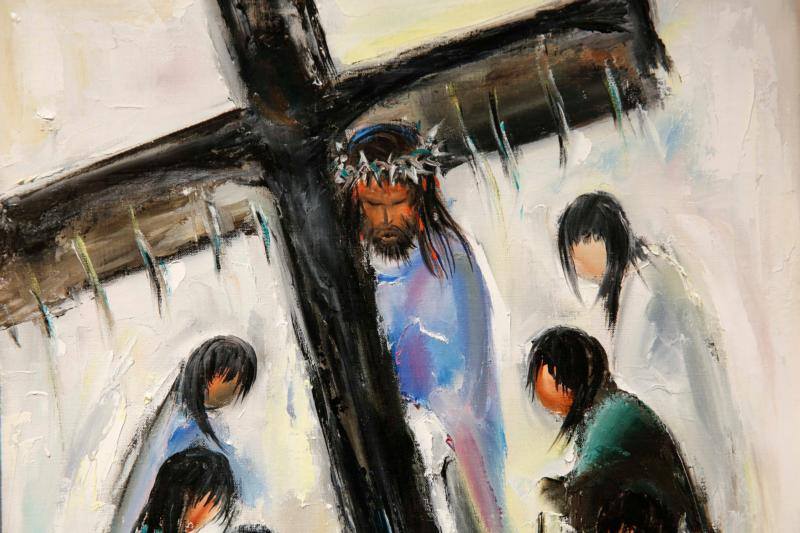What do you do when you know what is right, but the rules forbid it? This question lies at the center of a story when Jesus is, according to this account, somewhat entrapped by the Pharisees; they are apparently looking for any excuse to silence and get rid of him.
The motive of the onlookers is made plain: “They watched him…so that they might accuse him” (Mark 3:2). The priorities of God in Jesus and priorities of those concerned with maintaining the status quo clearly surface:
Again he entered the synagogue, and a man was there who had a withered hand. They watched him to see whether he would cure him on the sabbath, so that they might accuse him. And he said to the man who had the withered hand, “Come forward.” Then he said to them, “Is it lawful to do good or to do harm on the sabbath, to save life or to kill?” But they were silent. He looked around at them with anger; he was grieved at their hardness of heart and said to the man, “Stretch out your hand.” He stretched it out, and his hand was restored. The Pharisees went out and immediately conspired with the Herodians against him, how to destroy him. (Mark 3:1–6)
What is most interesting are the starting points of both Jesus and the onlooking Pharisees. It’s easy to look at this scenario and, with the 20/20 hindsight of Mark’s narrative, quickly castigate the Pharisees for their lack of sensitivity, their misguided prioritization of law over person, and the ostensible plotting that leads to their desire to entrap Jesus. However, these were religious leaders of the age trying to do what they thought was right. Given the benefit of the doubt, the Pharisees, in their concern for the proper observance of the Sabbath, were striving not to protect their own laws but those of God.
For as any good Jew or Christian should intuitively know, the Decalogue (the Ten Commandments) contains this command from God to keep holy the Sabbath. These religious leaders likely thought that they were doing the right thing, that they were simply obeying the desire of God and exhorting others to do likewise. It is also easy for us to look at the scenario and see that Jesus is the Word made flesh as we, in faith, proclaim, thereby anachronistically trumping the Pharisees’ interpretation of the Torah. For who would know the law of God better than God?
But there is an uneasy conflict here. God, in Jesus Christ, is rejected no less for the actualization of God’s law in the most authentic manner by those who at the same time strive, in the name of the same law, to protect that structure for living. The key—the condition for the very possibility of this rejection and conflict—arises in the subtle, unconscious, and even sincere misplacement of priorities. So often religious leaders and all people of faith can mistake the human interpretations of God’s law, God’s rules for authentic human living, for God’s command itself. This happened and was called out by Jesus Christ in the first century, and it happens and is occasionally called out today.
Who someone is supposed to love, how someone is to relate to others, what sort of work or ministry someone is supposed to do, who can or cannot participate in what ways in the life of the faith community, and so on, these remain examples of human interpretations of God’s law and desire even today.
So what does it mean when Jesus breaks the rules? Is this a clarion cry for all women and men of faith to engage in ecclesiastical disobedience? I don’t think so. It’s not a wild-card justification or a blank check to justify whatever view we wish to espouse or action we wish to pursue. When Jesus broke the rules, he did so to point out what God’s priorities really are: Do good…save life. These must always take priority.
Marginalization, discrimination, violence, hatred, and so forth, even dressed up in the sheep’s clothing of legal righteousness and religious zeal, are nevertheless indications that the priorities of God are being supplanted by the personal or collective interests of human beings. One only has to look to Jesus, the fullness of God’s self-disclosure and the very exegesis of God, to find example after example of what divine priority really looks like. When Jesus broke the rules, he did so for the sake of the other and never for his own personal gain. Nothing summarizes this truth better than the crosses we affix to walls and churches and chains around our necks. God does not care about our justifications for the unjust rules that some so passionately defend. God only desires that we do good and save life, even if it means breaking the rules.








